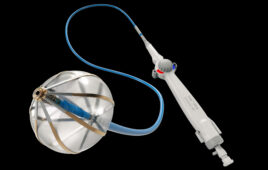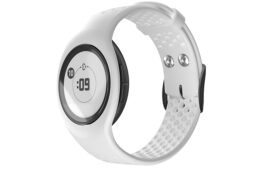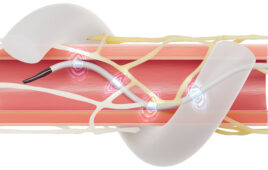
[Photo via Adobe Stock]
The University of South Florida calls it the largest randomized, controlled clinical trial testing the efficacy of hearing aids for reducing long-term cognitive decline in older adults. ACHIEVE evaluated patients between ages 70 and 84 with untreated hearing loss. These patients were free from substantial cognitive impairment.
Researchers conducted the study across four U.S. sites, evaluating 977 participants across two populations. Healthy community volunteers included 739 participants, while 238 participated in the Atherosclerosis Risk in Communities (ARIC) study.
The study found that, in older adults at increased risk for cognitive decline, hearing intervention slowed down the loss of thinking and memory abilities by 48% over three years.
The USF team says that while results were negative across the total study population, the hearing intervention did slow cognitive decline by 48% in a study subset of older adults with mild to moderate hearing loss who are participating in an ongoing observational study of heart health. Investigators believe the effect of the intervention on reducing cognitive decline only appeared in that group because they had a nearly three-fold faster rate of cognitive decline over the period of the study compared to the healthy volunteers enrolled.
Because of that faster rate of decline, the researchers saw the beneficial effects of hearing intervention over the course of the study.
“The hearing intervention had a significant effect on reducing cognitive change within three years in the population of older adults in the study who are at increased risk for cognitive decline,” said Dr. Frank Lin, of Johns Hopkins University School of Medicine and Bloomberg School of Public Health and co-principal investigator of the ACHIEVE study. “Hearing loss is very treatable in later life, which makes it an important public health target to reduce risk of cognitive decline and dementia, along with other dementia risk factors such as less education in early life, high blood pressure, social isolation and physical inactivity.”
More about the hearing intervention study
Researchers from Johns Hopkins and seven contributing institutions led the ACHIEVE study. USF researchers led the hearing intervention provided in the study. In addition to designing the intervention, the team trained the study’s audiologists and continuously monitored its hearing intervention.
Victoria Sanchez, assistant professor in the Department of Otolaryngology in the USF Health Morsani College of Medicine, was one of the USF team members.
“The ACHIEVE study is evidence that auditory rehabilitation, including the use of hearing aids, in older adults who had more risk factors for cognitive decline slowed the rate of cognitive decline,” said Sanchez. “Important risk factors for cognitive decline and dementia that could be potentially addressed to help reduce dementia include hearing loss, less education in early life, smoking, diabetes, high blood pressure, social isolation, and physical inactivity. Addressing hearing loss is one way we could reduce the increase rate of older adults living with dementia.”
Sanchez noted that established research shows that loss of hearing can increase the likelihood of cognitive decline. The concept requires “much more research,” she said. USF’s team continues to follow ACHIEVE participants beyond three years to look at the longer-term effects.
“Our results will hopefully create policy changes because in many parts of the world we need improved affordable access and insurance coverage for hearing treatment/intervention,” Sanchez said. “This does not mean just a hearing aid, as hearing intervention consists of two components. First are hearing aids and related hearing technologies, and second are the diagnostic and hearing care support services of an audiologist to guide the individual in using these hearing technologies to hear and communicate optimally.
Theories on why hearing aids might help slow cognitive decline
Researchers are still trying to understand the link between hearing and cognitive decline. It could be that the people with hearing loss may need to dedicate more brainpower to interpreting the limited sounds they can hear, Columbia University Irving Medical Center Associate Professor of Otolaryngology Justin Golub told the Washington Post.
It could also have to do with the faster temporal lobe shrinking of people with hearing problems, which might affect the brain’s structure and performance, said Golub, who was not involved with the study.
Or perhaps hearing loss makes it harder for people to engage in cognitively stimulating socialization.
“This is truly unique, truly groundbreaking,” Golub said of the research, according to the newspaper.




